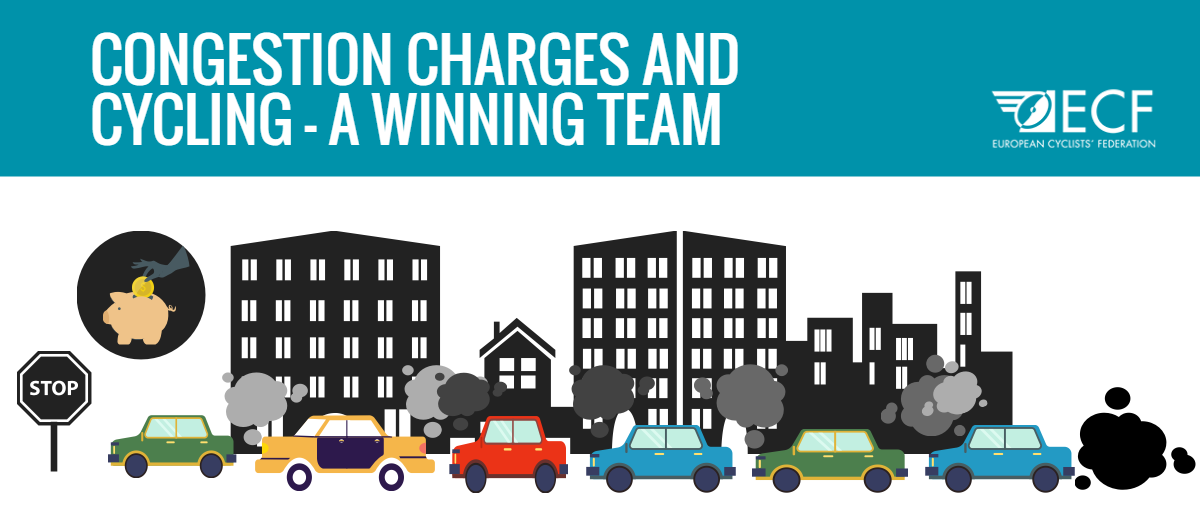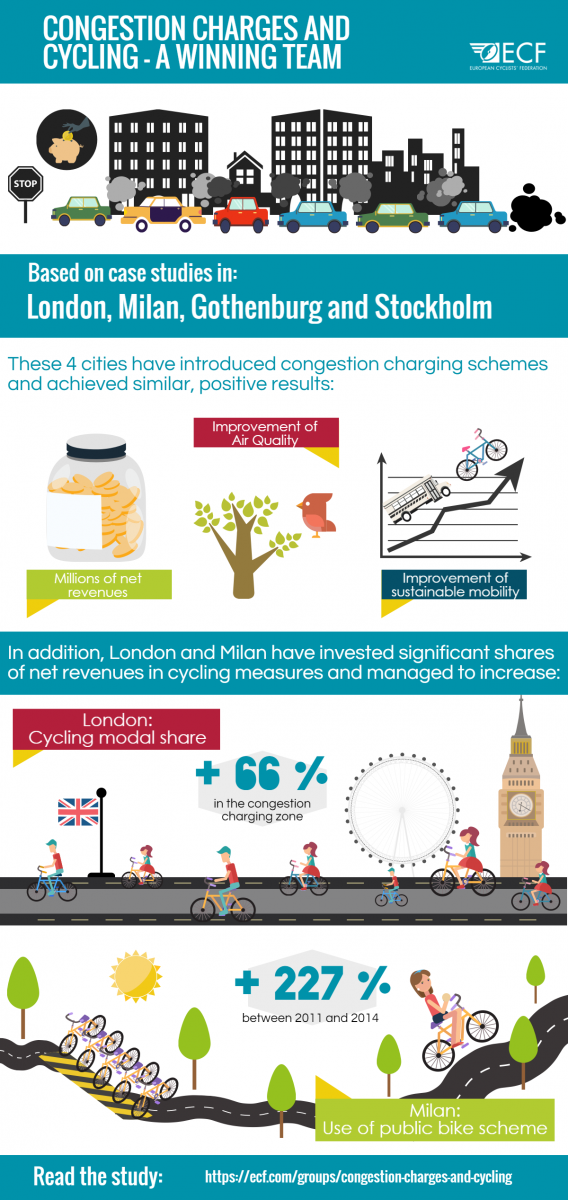
Congestion charges and cycling: a winning team

With over 100 billion EUR, congestion costs European cities over 1% of the EU GDP per year. Looking for a solution, ECF studied the implementation of congestion charges in 4 cities over many years: Milan, London, Gothenburg and Stockholm. The new ECF report “Congestion charges and cycling” proves the success of investing revenues from congestion charges into a sustainable mobility plan, and particularly cycling.
With different approaches, the 4 cities achieved similar, positive results: introducing a congestion charge scheme created net revenues, reduced congestion, improved air quality and was beneficial for sustainable mobility.
The study highlights that it is vital to plan the use of the revenues to improve sustainable mobility right from the beginning. To reduce car traffic ECF recommends the investment of net revenues in sustainable modes of transport. This will make the whole process more effective in the long term.
Cycling should play an integral role in this process. In Milan, congestion charges were spent entirely on measures to promote sustainable mobility. At least 3 million EUR were invested in the city’s bike sharing system “BikeMi”, which led to a considerable usage growth concentrated in the area covered by the congestion charge scheme.
In London, research showed that cycling in the inner city increased by an impressive 66% since the introduction of the congestion charge. Cycling has also become safer: crashes in Central London decreased by 40%.
The experiences from London and Milan show that investing net revenues from congestion charging schemes in cycling measures yields impressive results. These examples should be taken into account by other cities considering to introduce similar schemes, but also by the EU when developing non-binding guidance on urban access restrictions. Congestion charges and cycling are a winning team: investing in cycling helps to create an attractive alternative to motorised transport.
According to Holger Haubold, ECF’s Fiscal and Economic Policy Officer
In its "Communication on the Urban Mobility Package" of 2013 (COM(2013) 913), the European Commission identifies smarter urban access regulations and road user charging as a priority area for action. This is confirmed by the accompanying staff working document “A call for smarter urban vehicle access regulations” (SWD(2013) 526). Both documents call for a common approach across the EU and the establishment of non-binding guidance to help cities implement access regulation schemes, including urban road user charging, effectively.
Read the report here.
Contact the author
Recent news!
Upcoming events
Contact Us
Avenue des Arts, 7-8
Postal address: Rue de la Charité, 22
1210 Brussels, Belgium









